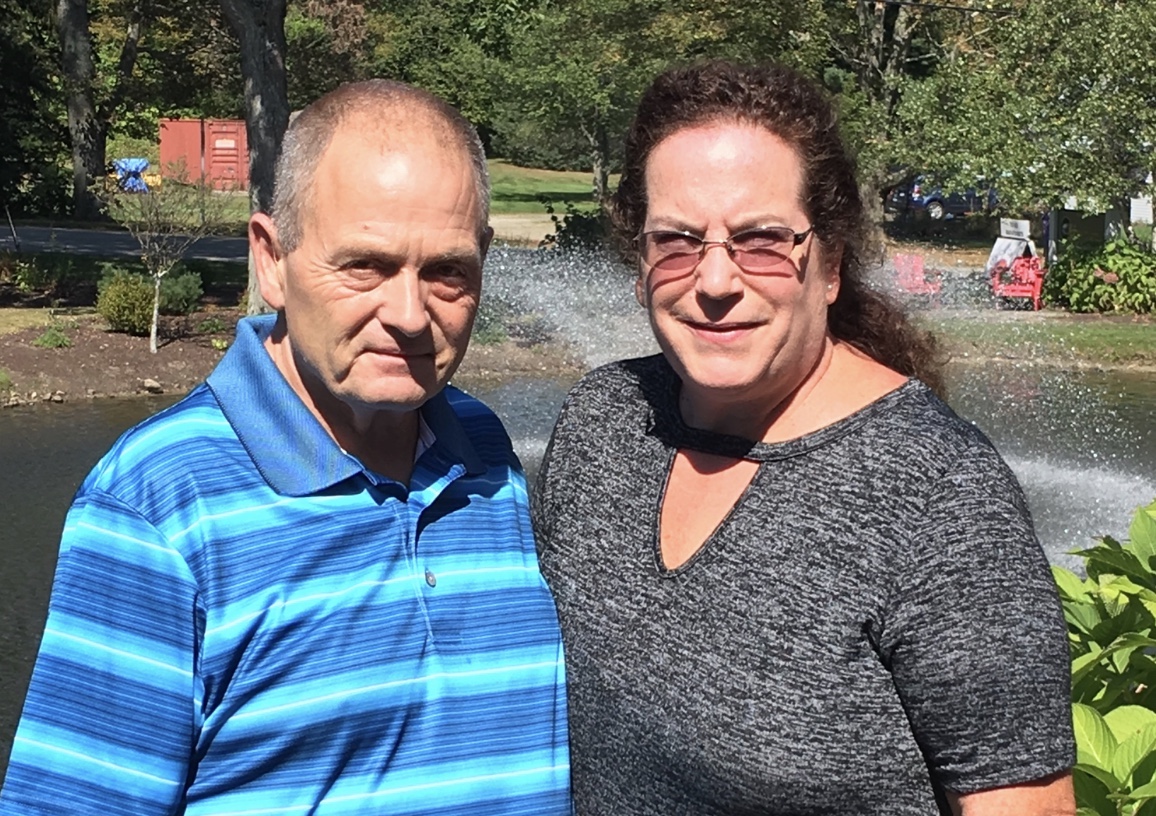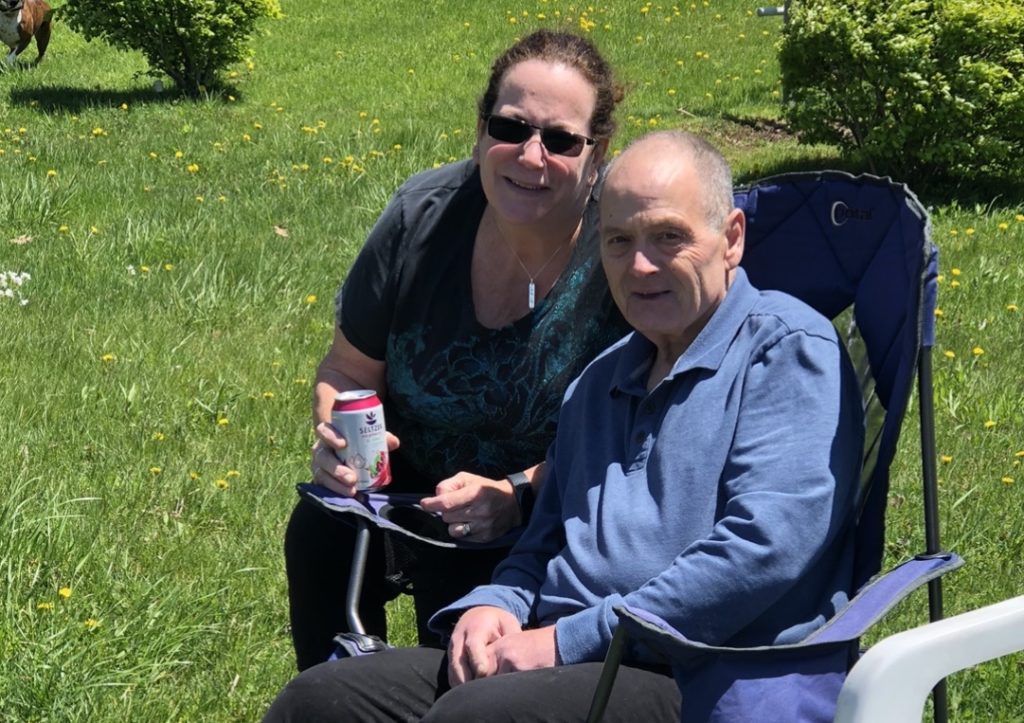Margaret and Tom’s Story: Giving All They Can During the Coronavirus Lockdown

Meet Margaret and Tom, East Coast natives who live in Connecticut.
What do you both do for work?
Margaret: I’ve been a United Way food pantry manager for the past 14 years. Normally, I order food for pickup, help people shop, and take inventory. It’s only open certain times a day to limit the foot traffic. My boss helps keep track of the stats for who’s coming in: age, race, and gender. We used to get a lot of kids coming through, but now those kids are grown up. These days, we’re getting a lot of people in the 45-80 age group.
Before this job, I worked at phone company for 20 years. When I finished my time at the phone company, I spent a year trying to find something to do. For nine months, I was searching for a job. Then, I ended up getting a job at the food pantry. I’ve been here ever since.
My husband, Tom, is on disability, and he worked part-time until last year. He worked at a temporary transitional housing program, where he worked with tenants’ case managers on finding appropriate housing, helping them go shopping for groceries, and making sure they followed the program’s rules. Tom also did a great job in helping raise our son.
What does a day in your lives currently look like?
Margaret: Tom and I spend a lot of time together once I’m off from work. We didn’t have the empty nester syndrome when our son moved last May because he only moved a mile away from us. In addition to working as a police dispatcher, he’s an EMT. We haven’t been going out as much. I tell people, “We’ll have the best-looking yard when all of this is done.”
Tom: I worked in the yard, clean the house, and go on social media. We enjoy being home and taking care of the home. When our son moved out, our utilities bill decreased by 40%. Our water and gas company even called to ask if anything was wrong with our meter, which is funny because they never called when the bill was higher than average! Our son’s moving out made a difference in our bills over the last nine months.
What does budgeting look like for you two these days?
Tom: We’ve learned to go through all the groceries we have before going out again as well as pinch pennies more often.
Margaret: We have a jar of babysitting money that we save for a rainy day. It’s there if something small comes up. Tom is also saving a penny a day this year. We want to take a three-day trip somewhere. We haven’t gone away for a vacation in 34 years. It would be really nice to either go to Niagara Falls or Acadia National Park, Maine.
What do you envision for your family’s future?
Margaret: We’re trying to stay focusing on saving up for our trip. Tom’s never been to Niagara Falls, and I thought that it would be something nice to do. I haven’t been there since I was a teenager in my high school’s 4-H program.
We had to file for bankruptcy four years ago because of medical bills. Ever since then, we focused on paying down what we owe.
Tom: The Quicken Loan people we work with are very nice. We pay over the phone. They work with us to figure out what we’re able to pay each month.

How do you feel about the shelter-in-place mandate?
Margaret: It’s weird. There’s a hill we typically drive on that’s usually so busy you can see the traffic for two miles down the road. These days, you almost forget you’re driving on that same road because no one is around you. At the food pantry that I help manage, we have a shelter connected to our building. We have businesses all around us making food for the community. Then it’s posted on Facebook and other social media. We also try to do take out once a week to support local businesses. I’m still able to work, so I’m grateful for that.
It’s scary to think of New York, where the number of people dying from the coronavirus is staggering.
Tom: It’s like fighting an invisible enemy. At this point, I’m worried a lot about the economy. It’s not like the New Deal where jobs were made. Nowadays, people have jobs, but they just can’t go back to them. I also worry about my wife going to work and getting exposed to the coronavirus. Her job is right next to a homeless shelter, and I don’t know where those individuals go all day.
How do your finances look these days?
Margaret: We’re saving what we can. Surprisingly, the gas in our car lasted us two weeks. Though it makes sense because we’re not going out as much. Normally, I’d go to my mom’s once a week. But she’s 89-years old, and all of our jobs (my son’s and mine) include dealing with the public. She doesn’t really understand, and we have to keep explaining to her, “We don’t want to get you sick.”
How do you feel about SaverLife?
Margaret: I read on your site how important it is to pay yourself first. Now we do that, and we’re able to stay on top of things.